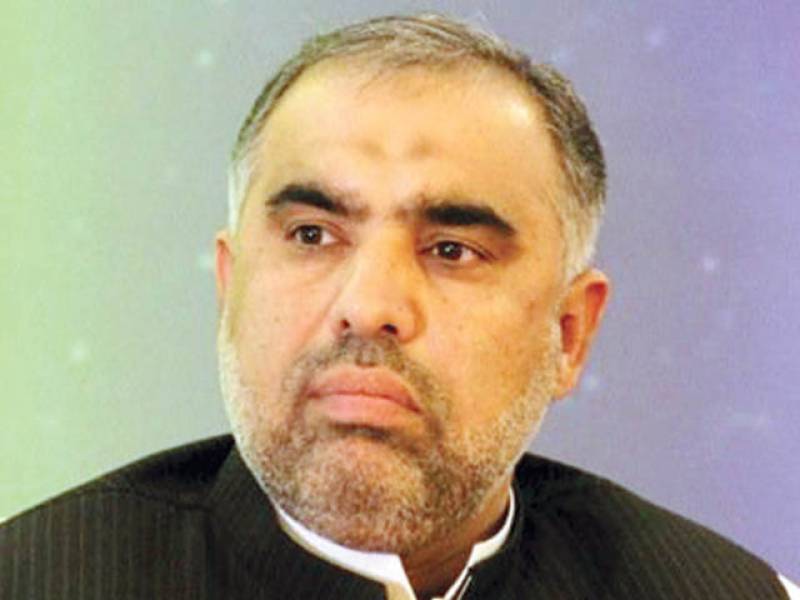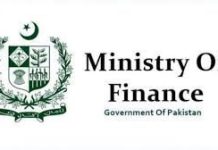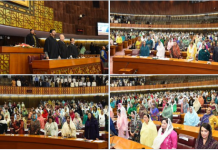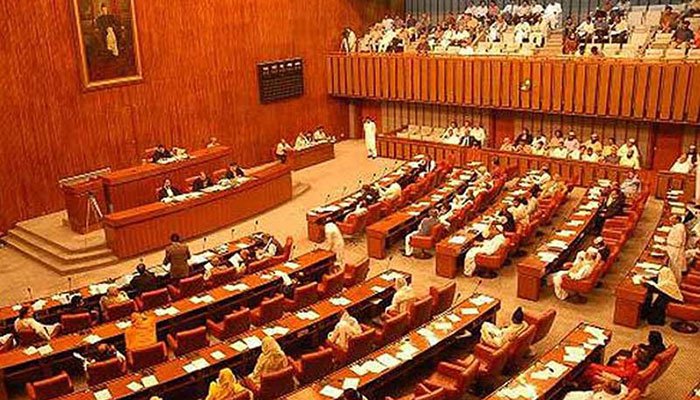ISLAMABAD: The Benazir Income Support Programme (BISP) is a prime women empowerment platform, taking lead in empowering the womenfolk financially, socially and politically.
BISP Chairperson Marvi Memon said this while launching a women empowerment ini
tiative of the BISP in a meeting of BISP
beneficiaries with the World Bank Group staff on Friday.
She said that the BISP was a unique programme that added dignity and meaning to life of its
beneficiaries by empowering them through awareness and linking them with other welfare programmes that might help them in exiting poverty.
In presence of
beneficiaries from all across Sindh, special training material on women empowerme
nt was unveiled. Under this empowerment ini
tiative, women will be educated through awareness while utilising the platform of the BISP
beneficiary committees (BBCs). The
beneficiaries will be taught basic counting and how to use automated teller machines (ATMs), besides educating them about the biometric verification system (BVS) for payment, National Socio Economic Registry (NSER), nutrition, health and their rights. Under the new ini
tiative, the women would also be educated on their rights and privilege as per the Islamic principles, leading to a truly Islamic society, she said.
World Bank Senior Director (Gender) Ms Caren Grown interacted with the
beneficiaries and stated that the BISP’s agenda of financial inclusion and women empowerme
nt was commendable, as it would bring sustainable development in Pakistan by streamlining its more than half of the population.
BISP Director General Tariq Mahmood highlighted the contributions of the BISP to women empowerment in Pakistan as recorded i
n the third impact evaluation report of the BISP. He said that the BISP brought 5.4 million women voters o
n the electoral list by providing them CNICs. In 2011, just 40 percent of the women in
beneficiary households were likely to vote, whilst in 2016 this number had risen to 70 percent, showing a massive change in implementation of democratic rights.
He said that the financial and social inclusion of women had improved, as 76 percent of the women retained full control on their stipend. As a result of the BISP support, there had been an increase in financial savings from 9 percent to 13 percent, drop in poverty by 7 percent, poverty gap by 3 percent and decrease in malnutrition of girls, he said.
Speaking o
n the occasion, Marvi Memon said that 91 percent of the
beneficiaries were either ultra poor or poor with low literacy rate of only 9 percent. “In this scenario, the BISP’s 55,000 BBCs are a goldmine women empowerment platform, that is working to enhance financial social empowerment and eliminate violence, [thus] bringing a real women revolution in line with tenants of Islam.”
The BISP
beneficiaries highlighted that stipend helped sustain their lives as it was spent on food and health. The
beneficiaries who had started their businesses
benefiting from the Prime Minister’s Interest Free Loan thanked Nawaz Sharif for his pro-poor policies. Around 50,000
beneficiaries have
benefited from the loan scheme.
Besides Caren Grown, the World Bank included Social Development Practice Manager David Set
h Warren and Senior Social Development specialist Helene Carlsson.










